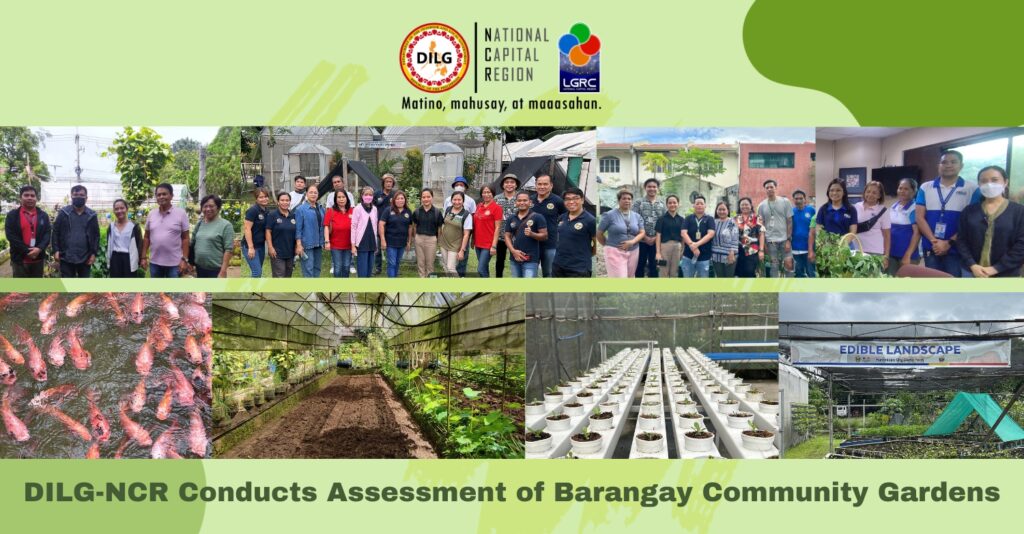
The Department of the Interior and Local Government – National Capital Region (DILG-NCR) conducted table assessment and on-site visits in four cities and six barangays from October 4-6, 12-13, and 16, 2023 to assess their current performance in the implementation of the âHalina’t Magtanim ng Prutas at Gulay (HAPAG) sa Barangay Project”.
The HAPAG Project was implemented by the DILG as a means of enhancing the nationâs food security by diversifying and localizing the source of the nationâs food supplies. By encouraging households and communities to grow fresh, healthy, and affordable fruits and vegetables in their backyards and other alternative spaces, as well as in vacant areas within the barangay itself, HAPAG aims to strengthen the capacity of local communities to adopt sustainable urban agriculture practices.
In support of HAPAG, the Department initiated the HAPAG-Kilala and HAPAG-Kalinga Recognition as a merit of distinction for all government units that demonstrated exemplary performance in the implementation of the HAPAG project. HAPAG-Kilala is given in recognition of exemplary performance by Barangays while HAPAG-Kalinga is a similar award for the City Category.
For the HAPAG-Kalinga Category, the Cities of Las Piñas, Muntinlupa, Pasig, and Quezon City were assessed based on their performance in terms of their initiatives and innovations undertaken and assistance provided to their respective barangays in support of the HAPAG sa Barangay Project. It also recognizes their contribution to the food security efforts of the national government.
For the HAPAG-Kilala Category, the barangays assessed include Brgy. Bel-Air and San Isidro, Makati City, Brgy. 696, City of Manila, Brgy. Holy Spirit and Talipapa, Quezon City, and Brgy. Pineda, Pasig City.
Based on the results of onsite visits to their community gardens, the barangays were observed distributing their produce for free or selling them at much lower prices than those available at public markets. Barangays that generate income from their community gardens use the money to maintain their gardens.
With the community gardens in place, local governments provide food support to the vulnerable sectors of their communities such as the poor and transient poor, malnourished children, solo parents, persons with disabilities (PWD), and geriatrics.
Furthermore, adopting alternative agriculture technologies appropriate for highly urbanized areas, the LGUs visited by the assessment teams were found to have already established their community gardens with more than 200 square meters of total land area, including space for composting facilities, well ahead of the establishment of the HAPAG sa Barangay Project.
